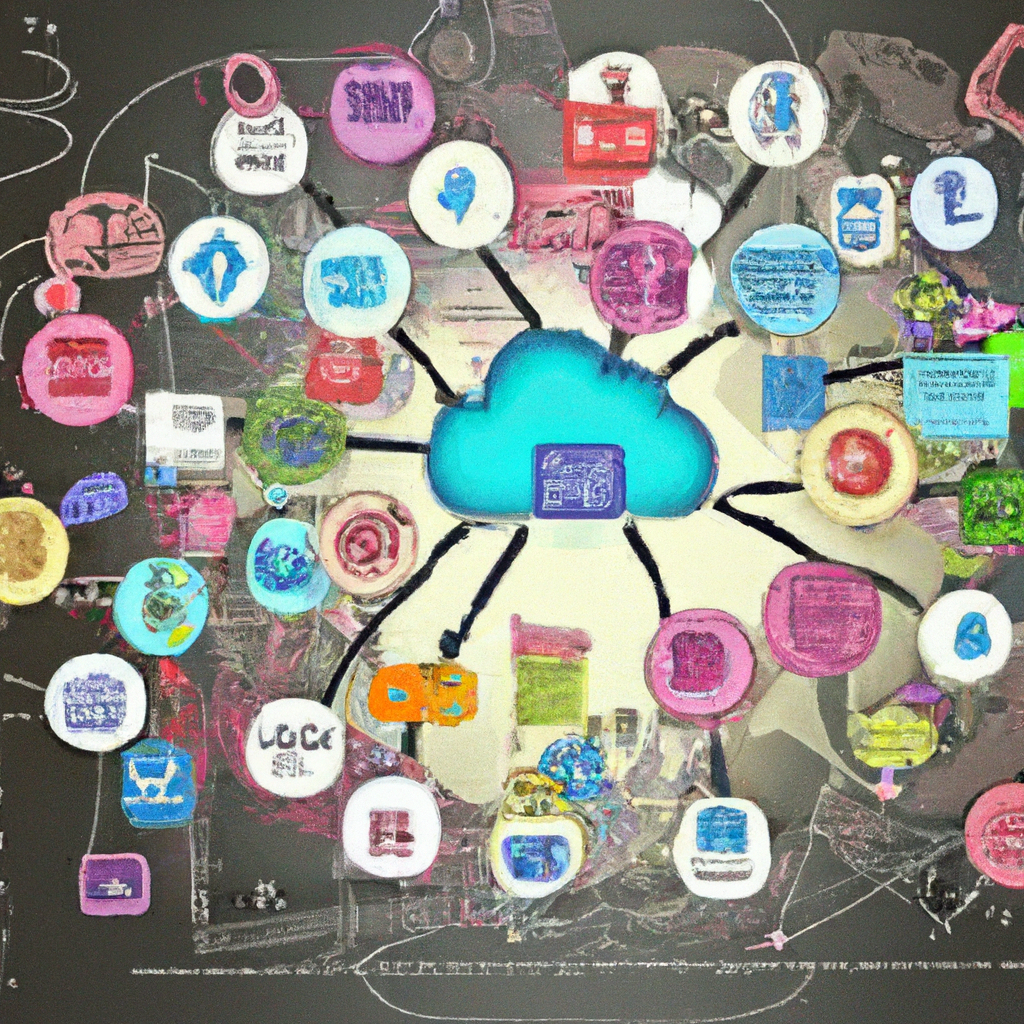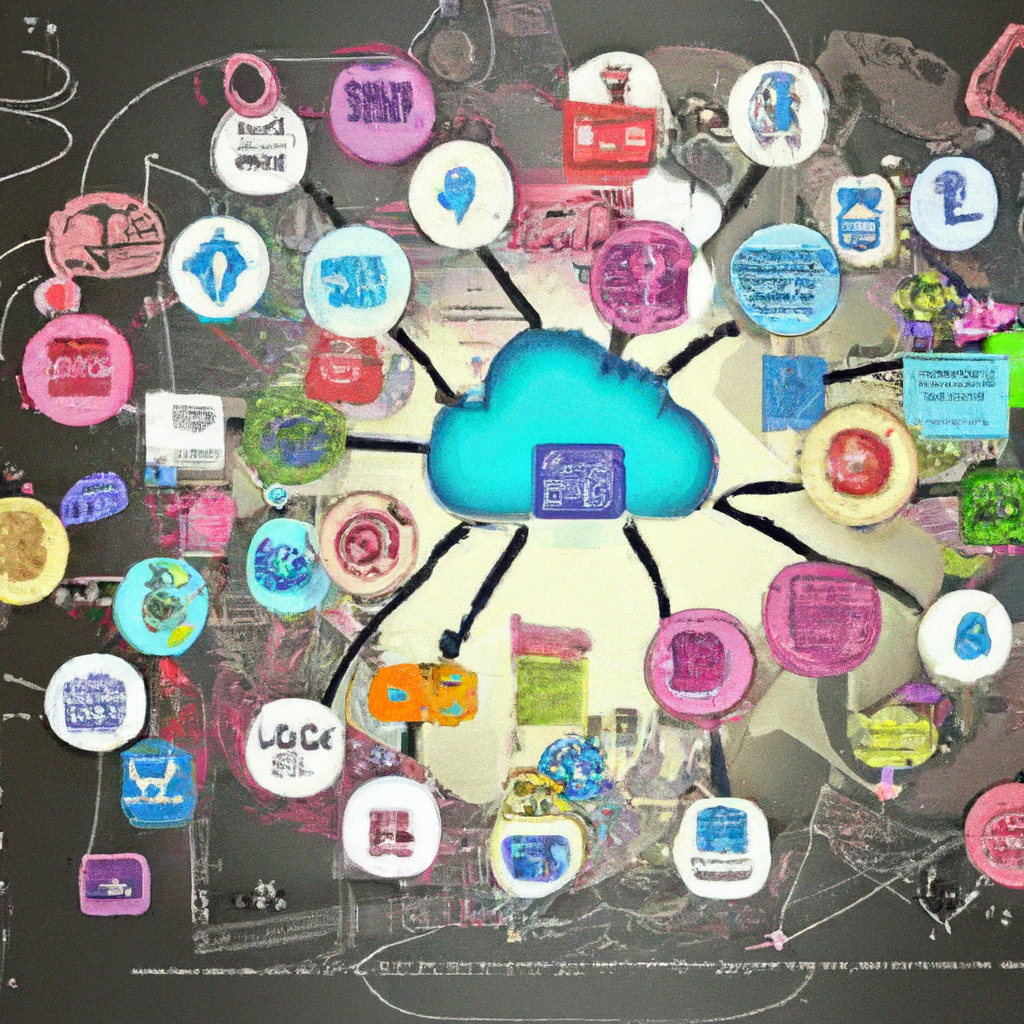So, you’re probably wondering about the origins of SaaS, huh? Well, let me satisfy your curiosity. In the ever-evolving world of technology, it’s important to know who pioneered the game-changing concept of Software as a Service (SaaS). While many companies have had their fair share of contributions to this innovative model, one name stands out among the rest. Stay tuned as we unveil the company that revolutionized the software industry and brought about a whole new era of convenience and efficiency in the digital realm.
Definition of SaaS
SaaS, or Software as a Service, is a software delivery model where applications are accessed over the internet instead of being installed on local devices. In this model, the software provider hosts and maintains the applications, providing users with access to the software through a web browser. As a user, you don’t need to worry about installing, updating, or maintaining the software, as all these tasks are taken care of by the SaaS provider. It offers a convenient and flexible way of using software, with the ability to access applications from anywhere, on any device, as long as you have an internet connection.
Early Development of SaaS
Emergence of Cloud Computing
The emergence of cloud computing played a significant role in the development of SaaS. Cloud computing refers to the delivery of computing services over the internet, allowing users to access resources and applications on-demand without the need for complex infrastructure or upfront investments. It provided the foundation for the SaaS model, enabling the hosting and delivery of software applications in a scalable and efficient manner.
Evolution of Software Delivery Models
Before SaaS, software was primarily delivered through on-premises installations. Users had to purchase and install software directly onto their devices, which often required extensive hardware and maintenance requirements. This model had limitations in terms of scalability, cost, and accessibility. As technology advanced, the need for a more flexible and convenient software delivery model became apparent, leading to the development of SaaS.
Evolution of SaaS
Salesforce.com
Salesforce.com, founded in 1999, is widely recognized as one of the pioneers of the SaaS model. The company introduced the concept of delivering CRM (Customer Relationship Management) software as a service over the internet. Salesforce.com revolutionized the industry by providing businesses with a flexible and customizable CRM solution that could be accessed from anywhere. Their success paved the way for the widespread adoption of SaaS and inspired other companies to follow suit.
NetSuite
NetSuite, founded in 1998 as NetLedger, is another key player in the evolution of SaaS. The company initially focused on providing integrated accounting software to small and medium-sized businesses. NetSuite expanded its offerings to include business management applications, such as ERP (Enterprise Resource Planning) and CRM software. Their cloud-based approach and comprehensive suite of applications made them a significant player in the SaaS market.

Workday
Workday, founded in 2005 by former executives of PeopleSoft, is a cloud-based enterprise software company specializing in HR (Human Resources) and financial management solutions. Workday disrupted the traditional HR and finance software market by offering a modern, user-friendly SaaS alternative. Their innovative approach, combined with the scalability and flexibility of the cloud, attracted many organizations and pushed the boundaries of what was possible with SaaS.
Salesforce.com
Company Overview
Salesforce.com, headquartered in San Francisco, California, is a global cloud computing company. They provide a wide range of cloud-based applications and platform services to help businesses manage their customer relationships, sales processes, marketing campaigns, and more. With a strong focus on innovation and customer success, Salesforce.com has become a key player in the SaaS industry.
SaaS Model and Innovation
Salesforce.com’s SaaS model delivers its applications over the internet, allowing users to access their CRM system from any device with an internet connection. They offer a subscription-based pricing model, which eliminates the need for upfront software costs and provides flexibility for businesses of all sizes. Salesforce.com has innovated in various areas, including introducing the concept of cloud-based CRM, developing a robust ecosystem of third-party applications through the AppExchange marketplace, and embracing the power of AI with features like Salesforce Einstein.
Impact on the Industry
Salesforce.com’s impact on the SaaS industry is undeniable. They popularized the concept of delivering software as a service and showcased the advantages of cloud-based solutions. Their success inspired other companies to develop and offer SaaS applications, leading to the widespread adoption of the model across various industries. Salesforce.com’s continuous innovation and commitment to customer success have set the bar high for the entire SaaS industry.
NetSuite

Company Overview
NetSuite, headquartered in San Mateo, California, is a leading provider of cloud-based business management software. Their suite of applications includes ERP, CRM, e-commerce, and financial management solutions, targeted primarily at small and medium-sized businesses. NetSuite’s comprehensive approach to business management sets them apart in the SaaS market.
SaaS Model and Innovation
NetSuite delivers its applications through the SaaS model, offering businesses a flexible and scalable solution without the need for complex infrastructure. Their cloud-based platform allows users to access their business management software from anywhere, on any device. NetSuite has also been at the forefront of innovation, introducing features such as real-time dashboards, automation tools, and robust integrations, empowering businesses to streamline their operations and make data-driven decisions.
Impact on the Industry
NetSuite’s impact on the SaaS industry is significant, especially in the realm of business management software. Their cloud-based approach has made powerful ERP and CRM solutions accessible to businesses of all sizes, eliminating the need for expensive on-premises systems. NetSuite’s success has inspired other SaaS providers to create comprehensive business management suites, driving innovation and competition in the industry.
Workday
Company Overview
Workday, headquartered in Pleasanton, California, is a leading provider of cloud-based HR and financial management software. Their solutions help organizations streamline their HR processes, manage payroll, handle recruiting and talent management, and more. Workday’s user-friendly interface and modern approach to enterprise software have gained them a significant market share in the SaaS industry.
SaaS Model and Innovation
Workday’s SaaS model enables organizations to access their HR and financial management software securely from any device with an internet connection. Their intuitive interface and mobile-friendly design make it easy for users to navigate and perform tasks efficiently. Workday has also embraced innovation, incorporating features like artificial intelligence-powered analytics, predictive forecasting, and continuous updates to ensure their customers have access to the latest advancements in HR and finance technology.
Impact on the Industry
Workday’s impact on the SaaS industry can be seen in the way they have transformed and modernized the HR and finance software landscape. Their user-centric approach and cloud-based model have challenged traditional systems, providing organizations with more flexibility, scalability, and accessibility. Workday’s emphasis on innovation and customer satisfaction has pushed the boundaries of what can be achieved with SaaS in the HR and finance domains.
Other Major Contributors
Google Apps
Google Apps, now known as Google Workspace, was one of the earliest examples of SaaS for productivity applications. Google introduced cloud-based alternatives to traditional office software, such as Gmail, Google Drive, and Google Docs. Their suite of applications, accessible through a web browser, offered collaboration and productivity tools that revolutionized the way people work and collaborate.
Amazon Web Services
While primarily known for their infrastructure services, Amazon Web Services (AWS) played a significant role in the development of SaaS. AWS provided the infrastructure backbone for many SaaS providers, enabling them to scale their applications globally and deliver them reliably over the internet. Their comprehensive suite of cloud services has made it easier for companies to build and run SaaS applications.
Microsoft Azure
Microsoft Azure, Microsoft’s cloud computing platform, has become a significant player in the SaaS market. With Azure, Microsoft provides a scalable and secure platform for building, deploying, and managing SaaS applications. Their extensive range of services and global footprint have made Azure an attractive choice for SaaS providers, offering them the tools and infrastructure needed to deliver their applications effectively.
Conclusion
SaaS has revolutionized the software industry, offering businesses and individuals a more accessible, convenient, and cost-effective way of accessing and utilizing software applications. Companies like Salesforce.com, NetSuite, and Workday have been instrumental in developing and popularizing the SaaS model, showcasing the benefits of cloud-based software delivery. The impact of SaaS extends beyond these key players, with other major contributors like Google, Amazon, and Microsoft shaping the industry’s landscape. As SaaS continues to evolve and innovate, it promises to reshape the way we use and interact with software, making technology more accessible and empowering businesses to thrive in the digital era.
